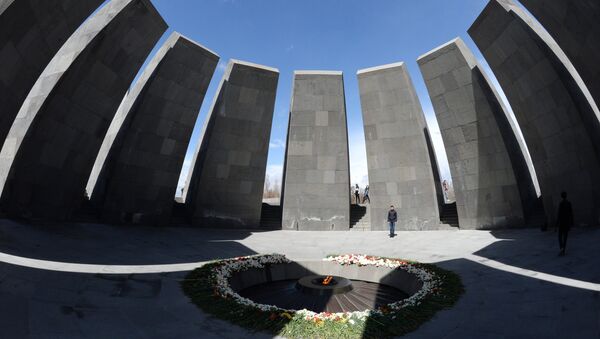On Thursday, the Dutch parliament approved two motions to consider recognizing the Armenian genocide and send a minister or state secretary to the commemoration event of the genocide that will take place in the Armenian capital of Yerevan in April. The motions were proposed by Christian Union lawmaker Joel Voordewind.
"The Turkish Foreign Ministry has summoned the charge d’affaires of the Netherlands in connection with reports about the Dutch parliament's plans to support Armenia's claims regarding the events of 1915," Aksoy's statement read.
Dutch parliament poised to formally recognise Armenian genocide: media https://t.co/m4fWCP6ndf
— DutchNews.NL (@DutchNewsNL) February 16, 2018
The Dutch move came amid the ongoing deterioration of Dutch-Turkish relations. In 2017, Dutch authorities refused entry to Turkish Foreign Minister Mevlut Cavusoglu and Family and Social Affairs Minister Fatma Betul Sayan Kaya, who were going to participate in the Turkish rallies for the referendum on amendments to the Turkish constitution. Earlier this month, the Netherlands decided to formally withdraw its ambassador from Ankara, who has been denied access to the country since March.
Bijleveld: Turkije zal niet blij zijn met erkenning Armeense genocide #Armenië #genocide https://t.co/LN1o6mtB8x pic.twitter.com/qfkmeGjghU
— RD.nl (@refdag) February 16, 2018
TWEET: Background: Turkey will not be happy with recognition of Armenian genocide
The sensitive issue of the Armenian genocide has been debated for a long time. According to the Armenian side, around 1.2 million Armenians were intentionally killed or starved to death by the Ottoman Empire during and after World War I. Ankara has repeatedly denied accusations of committing mass murder of Armenians, claiming that the victims of the tragedy were both Turks and Armenians.
Among the 29 countries which recognize the Armenian genocide, are Russia, France, Germany and others.


